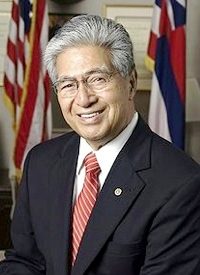
The death of Osama bin Laden has provoked a number of questions from the mainstream media and the American people, ranging from the specifics of the encounter and the parties responsible to whether or not the mission was even warranted. To one Senate Committee, however, the more pressing issue is whether or not the military showed intolerance by calling the mission to capture or kill bin Laden “Geronimo.”
The Senate Indian Affairs Committee has scheduled a hearing on racist Native American stereotypes, which will now include a discussion of the codename Geronimo dubbed for the mission to capture or kill the alleged September 11 mastermind.
Geronimo was an Apache leader known for his courage, as he was one of the last of his tribe to surrender to the United States. He has also garnered a reputation for invoking fear from his enemies and is highly regarded in the Native American culture.
According to ABC News, the codename Geronimo was issued for the mission to represent the act of killing an international terrorist, not for the terrorist himself.
One committee aide said that connecting the name Geronimo to Osama bin Laden is inappropriate and has a potentially devastating impact on children.
The committees chief counsel, Loretta Tuell, explains, The hearing was scheduled well before the Osama bin Laden operation became news, but the concerns over the linking of the name of Geronimo, one of the greatest Native American heroes, with the most hated enemies of the United States is an example of the kinds of issues we intended to address at Thursdays hearing.
Tuell added, These inappropriate uses of Native American icons and cultures are prevalent throughout our society, and the impacts to Native and non-Native children are devastating.
Similarly, Native American writer Debbie Reese wrote in the Wall Street Journal:
A Native frame of reference is one that is inundated with appropriation and misrepresentation of who we were, and who we are today. There are research studies that point to the negative effects of this sort of imagery on the self-esteem and self-efficacy of Native children. There are other studies that point to the high rates of suicide, and to the high drop-out rates of our children.
If your (non-Native) point of view is Geronimo as the courageous leader, then you probably think the use of his name honors him and links him to the courage of the Navy SEALS who carried out the operationIf your point of view is Geronimo as the blood-thirsty savage, then you probably think that Geronimo was a terrorist.
The Senate Committee on Indian Affairs takes issue with the allegedly stereotypical representations of Native Americans in the media. The Committees website explains:
Wild West shows, Hollywood films, and Indigenous based mascots have shaped the perception of Indigenous peoples for over one hundred years. Early media forms generally presented Native Americans either as noble yet submissive warriors or as bloodthirsty savages. Emerging from these shows and films were Native American mascots. Research shows that Native American mascots have negative effects on Native students’ self-esteem and sense of worth and that exposure to Native American team mascots increases a person’s negative stereotyping of other races. The awareness of the impacts of these stereotypes, actions of governments, and the emergence of Indigenous actors and directors has greatly contributed to overturning a century of harmful stereotypes.
Senator Daniel K. Akaka (pictured above) is the Chairman of the Senate Committee on Indian Affairs. He asserts the importance of todays hearing, Our hearing is about the real harm that is done to all people, Native and non-Native alike, when mascots, movies, and images reinforce the stereotypes and the lines that divide rather than unite us.
The same committee was responsible for the passage of the Native American Apology Resolution in 2009, which offered an apology from the United States government to American Indians. Co-sponsors of the resolution were Republican Senator Sam Brownback and Democrat Byron Dorgan, then Chairman of the Senate Committee on Indian Affairs. Brownback explained of the resolution, The resolution seeks reconciliation and offers an official apology to Native Americans for the hurtful choices the federal government made in the past.
With this Committees focus on the portrayals of Native Americans and the impact of such depictions on the identity and self-worth of Native Americans, one wonders how far members of the United States Senate will bend to assure that no groups ever feel offended. It certainly seems a bit unrealistic.
Related article:
Indians On Warpath Over bin Laden Operation Code Word: Geronimo




